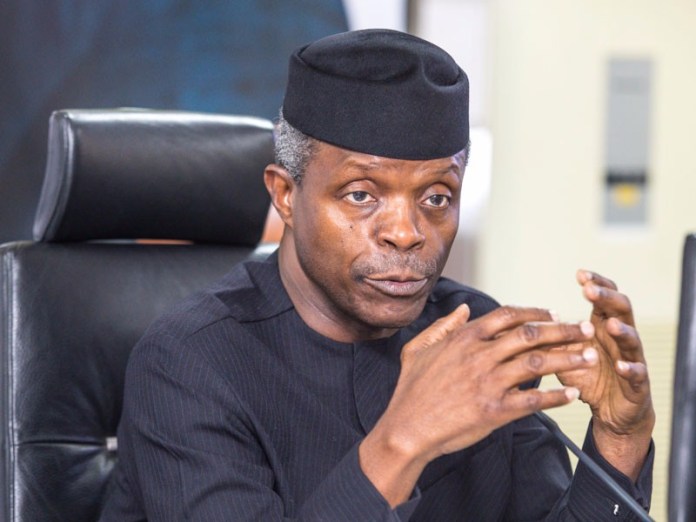Vice-President Yemi Osinbajo on Thursday has said Nigeria plans to have 30 per cent of its electricity supply from renewables by 2030.
According to a statement by his Senior Special Assistant on Media and Publicity, Laolu Akande, the Vice-President said this in his message delivered virtually at the inauguration of a 1.12 MW Captive Solar Hybrid Power Plant at the Abubakar Tafawa Balewa University, Bauchi.
The project was said to have been executed under the Energising Education Programme, an initiative of the Federal Government aimed at providing 37 federal universities and seven teaching hospitals with captive energy solutions that would ensure sustainable and reliable power for students and faculty.
The statement was titled ‘Why Nigeria is changing to cleaner energy, by Osinbajo’.
Akande qouted the Vice President as saying that with the inauguration, Nigeria’s energy transition plan to renewables was on course.
The plan, he said, was in line with the globally endorsed climate change agenda and the present regime’s effort to connect more communities to off-grid power and reliable energy sources.
Osinbajo said, “Rnewables are the fastest growing segments of energy today and will certainly be a key economic driver well into the future.
“Indeed, Nigeria intends to have 30 per cent of its electricity supply from renewables by the year 2030.
“Our future workforce therefore needs to be ready for this energy transition. The training centres constitute a critical additional benefit of this project.”
The Vice President said the programme reaffirmed the Federal Government’s commitment to global best practice as the country transits to cleaner sources of energy in line with the Paris Agreement on Climate Change.
He added, “These projects being implemented by the Rural Electrification Agency are strategic to fulfilling our commitments to the agreement as they strive to reduce Nigeria’s carbon footprint.
“The leveraging of renewable energy technology is in line with the Federal Government’s mandate and related activities.
“Nigeria’s plan to reduce carbon emission by 20 per cent unconditionally and 45 per cent with international support by 2030, aims to limit the damaging effect of climate change.”
Osinbajo disclosed that 22,000 students and faculties across the country were already connected to completed projects in Kano, Ebonyi, Benue and Bauchi states.
He said apart from providing a reliable source of captive power for these institutions, each institution would have a renewable energy workshop and a centre to provide training to students in renewable energy.
Meanwhile, Osinbajo, also on Thursday presided over the inaugural meeting of the Cabinet Committee for the Review of the Draft National Transport Policy.

 Forex2 weeks ago
Forex2 weeks ago


 Naira2 weeks ago
Naira2 weeks ago
 Naira4 weeks ago
Naira4 weeks ago
 Company News4 weeks ago
Company News4 weeks ago
 Billionaire Watch1 week ago
Billionaire Watch1 week ago




 Naira2 weeks ago
Naira2 weeks ago




 Naira4 weeks ago
Naira4 weeks ago




 Naira1 week ago
Naira1 week ago


















